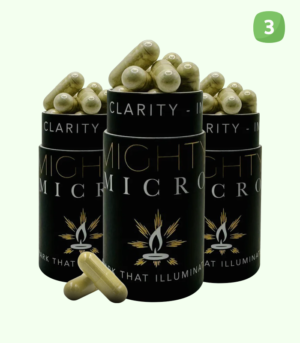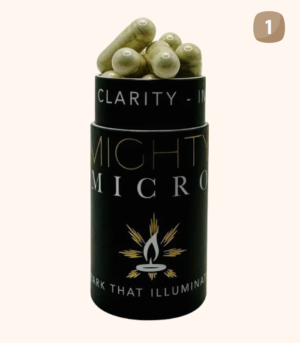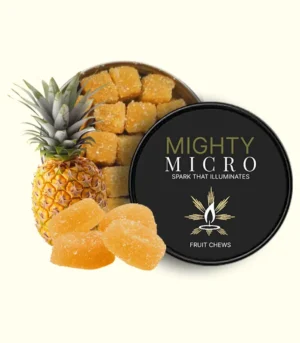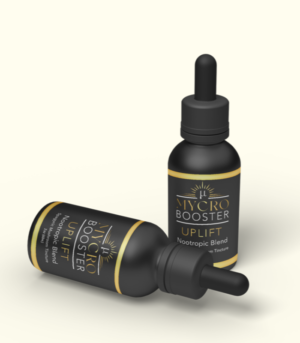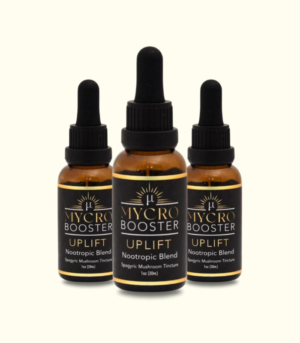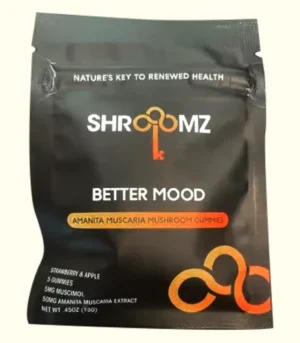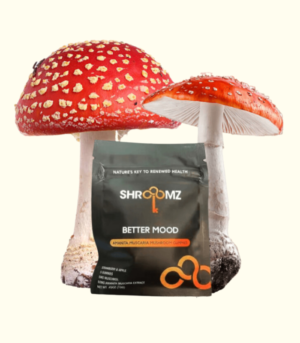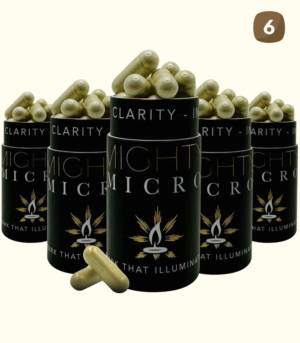Micro-dosing psilocybin, the psychoactive compound found in magic mushrooms, has gained popularity in recent years for its potential benefits on mental health and well-being. By taking sub-perceptual doses of psilocybin, individuals may experience subtle enhancements in mood, creativity, and cognitive function without experiencing a full-blown psychedelic trip.
While anecdotal reports and preliminary research show promise, the long-term effects of micro-dosing psilocybin on mental health and well-being remain an area of ongoing investigation. This article will explore what we know so far about the long-term implications of this practice.
What Are the Short-Term Benefits of Micro-Dosing Psilocybin?
Several short-term benefits of micro-dosing psilocybin have been reported, including:
- Improved mood and emotional well-being
- Increased creativity and cognitive flexibility
- Enhanced focus and concentration
- Reduced anxiety and stress
- Greater empathy and connection with others
These short-term benefits have led many individuals to incorporate micro-dosing into their daily routines as a tool for personal growth and mental health maintenance.
What Do We Know About the Long-Term Effects of Micro-Dosing Psilocybin?
While research on the long-term effects of micro-dosing psilocybin is still in its infancy, a few studies provide some insight into potential outcomes. A study published in the Journal of Psychopharmacology in 2021 found that individuals who reported micro-dosing psilocybin showed improvements in well-being and life satisfaction compared to those who did not micro-dose. Additionally, the study found no evidence of increased psychological distress or adverse effects on cognitive function.
Another study, published in the journal ACS Pharmacology & Translational Science in 2020, suggested that long-term micro-dosing could potentially lead to neuroplastic changes in the brain, promoting neural growth and increased synaptic connectivity. These changes may have implications for mental health, particularly in the context of depression and anxiety disorders, where neuroplasticity is often compromised.
How does regular micro-dosing of psilocybin impact mood stability in the long run?
Regular micro-dosing of psilocybin may have a positive impact on mood stability over the long term, based on preliminary research and anecdotal evidence. Here’s how it might influence mood stability:
- Enhanced Emotional Regulation
Micro-dosing can improve emotional regulation by increasing serotonin levels in the brain. This can lead to more stable moods and a reduced likelihood of experiencing severe mood swings.
- Reduced Symptoms of Depression and Anxiety
Studies suggest that micro-dosing psilocybin may alleviate symptoms of depression and anxiety, which can contribute to overall mood stability. By potentially reducing the severity of these conditions, individuals might experience a more consistent mood.
- Increased Resilience
Regular micro-dosing might enhance psychological resilience, allowing individuals to better handle stress and emotional challenges. This increased resilience can contribute to a more stable and balanced mood.
- Improved Overall Well-Being
By promoting positive changes in brain function and cognition, micro-dosing may support a general sense of well-being. Individuals often report feeling more content and less prone to mood fluctuations.
- Potential for Tolerance Development
It’s important to note that tolerance to psilocybin can develop over time, which might affect its impact on mood stability. Adjustments in dosage or frequency might be needed to maintain the desired effects.
Buy Magic Mushroom Online
What Are the Potential Risks and Considerations of Micro-Dosing Psilocybin?
While the long-term effects of micro-dosing psilocybin appear promising, it is essential to consider potential risks and individual factors. Psilocybin is still classified as a Schedule I substance in many countries, including the United States, making it illegal to possess or use. Additionally, individuals with a personal or family history of psychosis or other mental health disorders should exercise caution, as micro-dosing may exacerbate pre-existing conditions.
There is also the potential for developing a tolerance to the effects of psilocybin over time, which could lead to increased dosing and the risk of adverse effects. Finally, the lack of standardized dosing and quality control in the production of psilocybin-containing products means that individuals may be exposed to varying concentrations of the active compound, increasing the risk of unintended side effects.
The long-term effects of micro-dosing psilocybin on mental health and well-being remain an area of ongoing research. Preliminary findings suggest potential benefits such as improved well-being, life satisfaction, and neuroplastic changes. However, it is crucial to consider the potential risks and legal implications associated with this practice. As research continues to develop, a more comprehensive understanding of the long-term effects of micro-dosing psilocybin will emerge, helping individuals make informed decisions about incorporating this practice into their lives.


